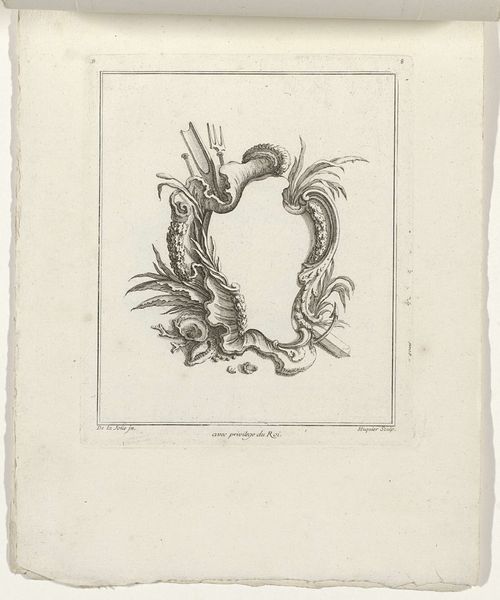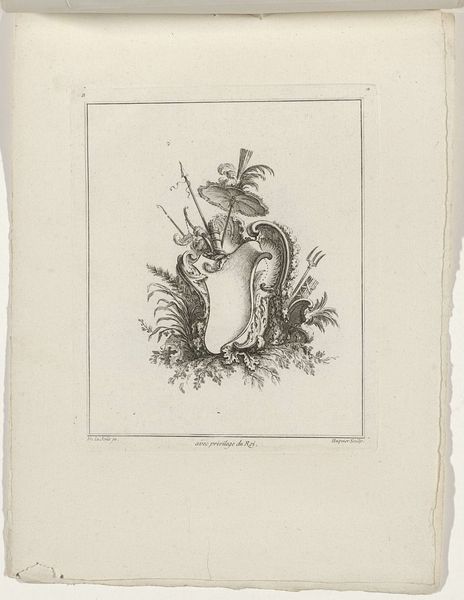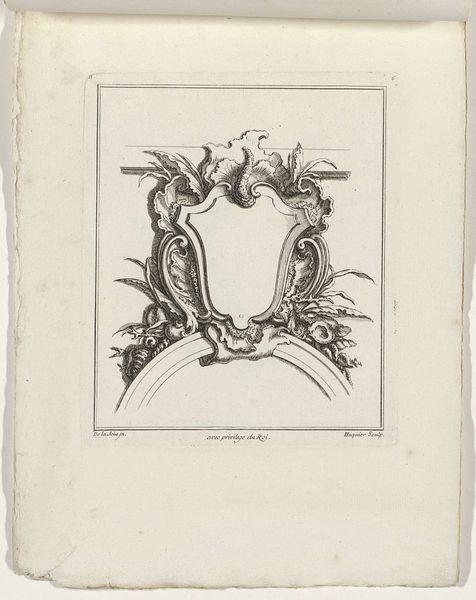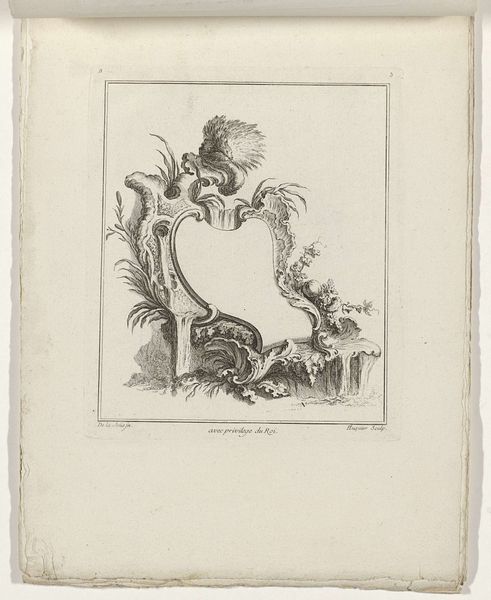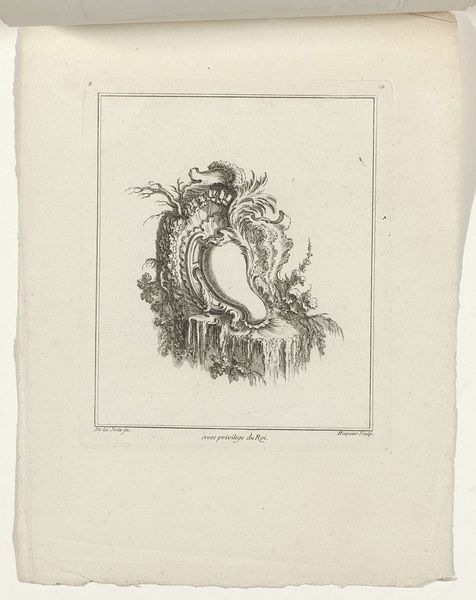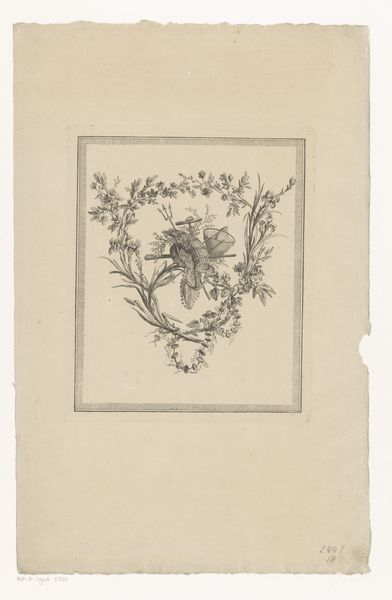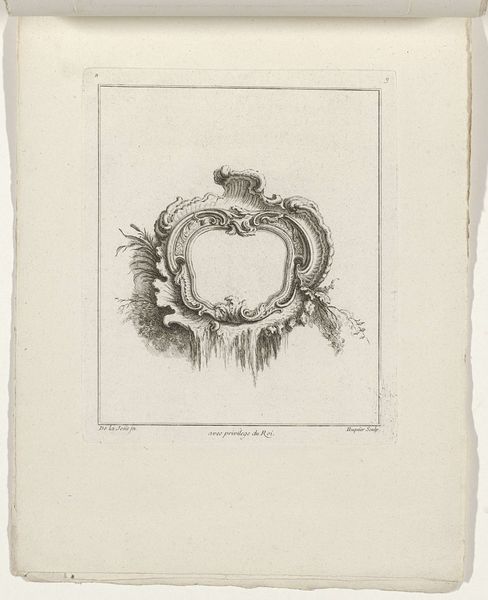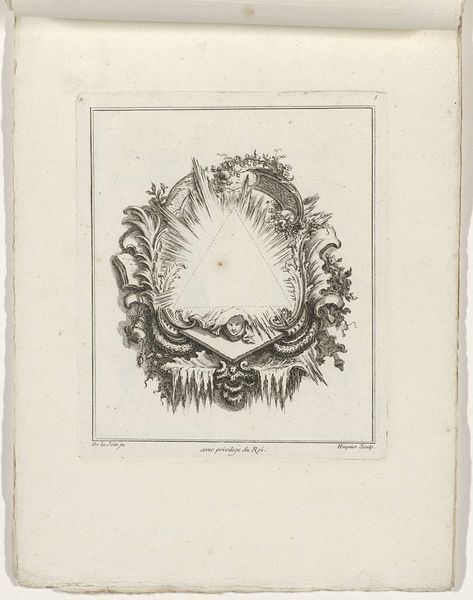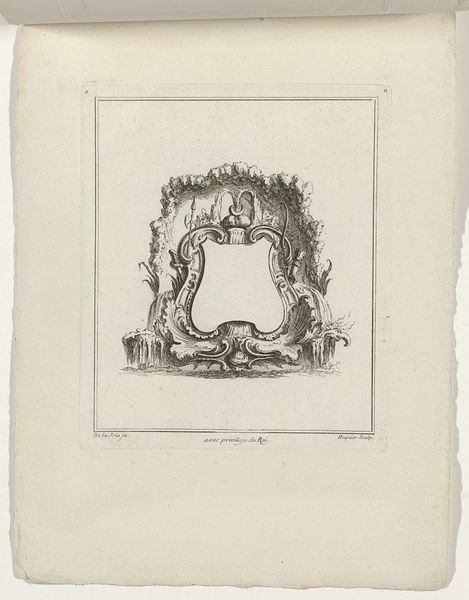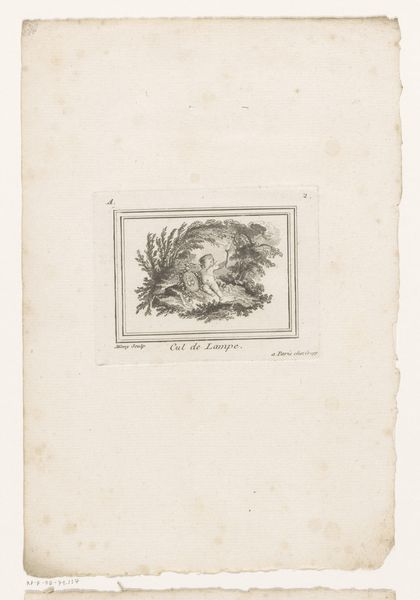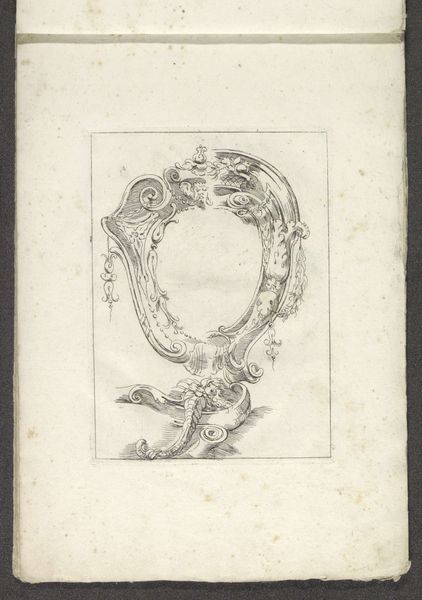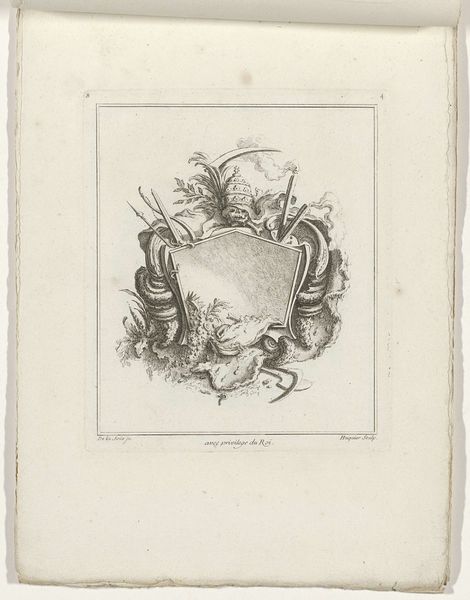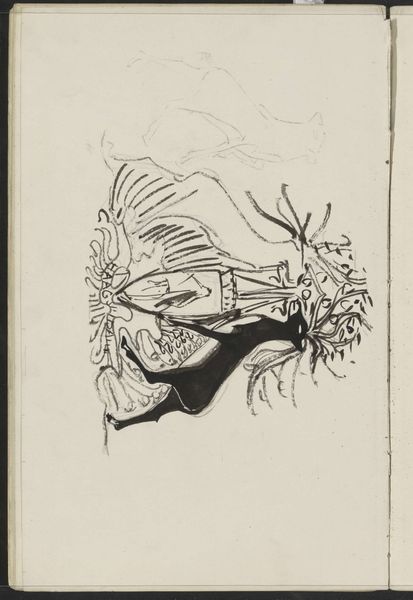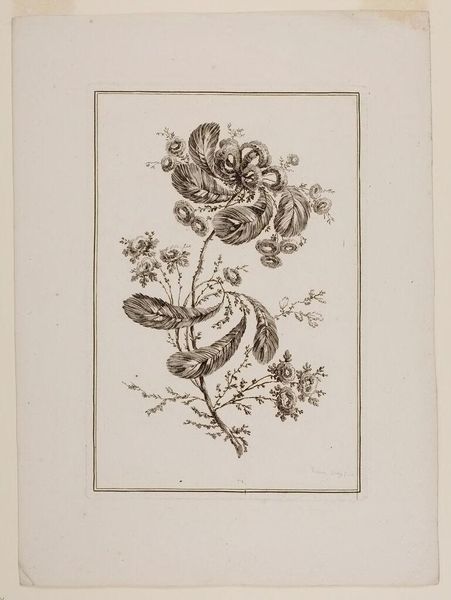
drawing, print, paper, engraving
#
drawing
# print
#
pencil sketch
#
old engraving style
#
paper
#
engraving
#
rococo
Dimensions: height 230 mm, width 198 mm, height 350 mm, width 268 mm
Copyright: Rijks Museum: Open Domain
Gabriel Huquier created this ornamental design featuring a lozenge-shaped cartouche surrounded by shell motifs, using etching techniques, sometime between 1695 and 1772. Huquier was working in a period defined by strict social hierarchies and the rise of mercantilism. Ornamental designs like these were not simply decorative, but served to reinforce the status of the elite. During this era, the decorative arts became intertwined with expressions of power and identity. Shell motifs, like those surrounding the cartouche, were popular elements in interior design and fashion, symbolizing wealth and sophistication. Consider how the blank cartouche might serve as a space for individual or family heraldry. What stories could be told through the images placed within such a frame? What kind of identity would the owner try to project? Ultimately, this print encapsulates the complex relationships between art, identity, and social status in the 18th century.
Comments
No comments
Be the first to comment and join the conversation on the ultimate creative platform.
